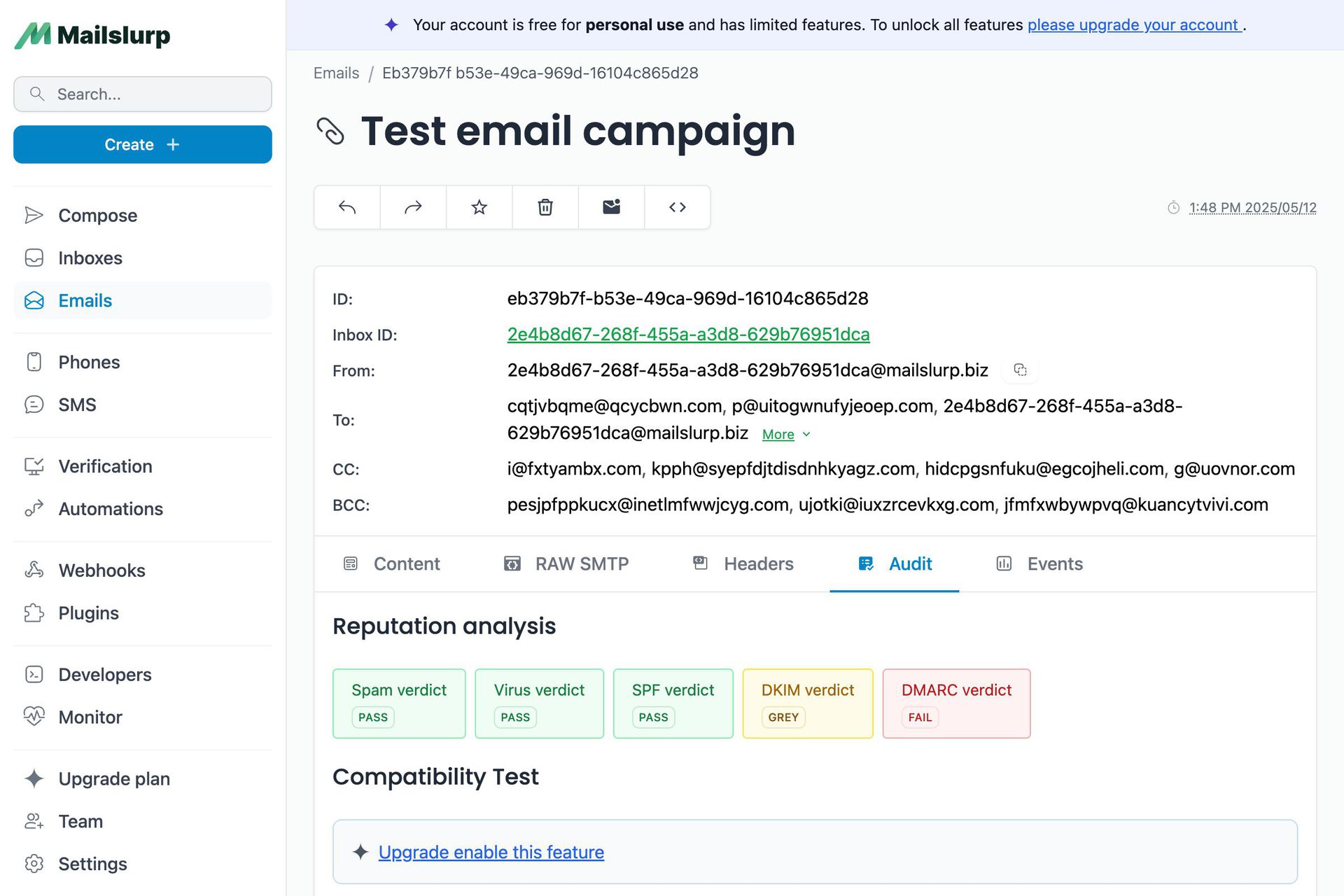MailSlurp is an email and SMS automation and testing platform. Connect to email inboxes and phone numbers from your code and tests using REST APIs, SMTP/IMAP, Webhooks, and client SDKs.
How it works
MailSlurp mailservers and telco contracts that allow you to spin up unlimited email accounts and phone numbers on demand. These are clean addresses and numbers that can send and receive messages. You can configure entities from within the online dashboard
Email account generator
Create and control actual email accounts via REST and SDK. These mailboxes can be real or use fake mailservers for a sandboxed environment. Use custom domains or randomly assigned email accounts from a pool of domains. Enable account wide catch-alls, routing rules, auto-forwarding, out of office replies and much more.
Phone numbers on demand
Use our phone number generation APIs to allocate real numbers from global telecom providers. Receive SMS and shortcodes in your app and tests. Configure SMS webhooks to create message gateways. Test application OTP verification and 2FA or multifactor authentication methods within your company.
Message automations
MailSlurp provides complex automations that enable routing of messages and high volume processing of email, SMS, and attachments.
Connect multiple mailboxes
Use inbox connectors to control external email accounts at scale with a singular interface. This means you can automate company email accounts or providers such as Gmail and Outlook to extend functionality and build automatic workflows.
How to use MailSlurp
There are many ways to integrate with MailSlurp. See our quick start guides, developer docs and example projects to get started.
API clients
We publish native API clients in a wide range of languages as well as plugins for common test frameworks like Playwright, Selenium, and CypressJS
No code integration
MailSlurp provides a visual dashboard plus integrations like our Zapier email plugin.

